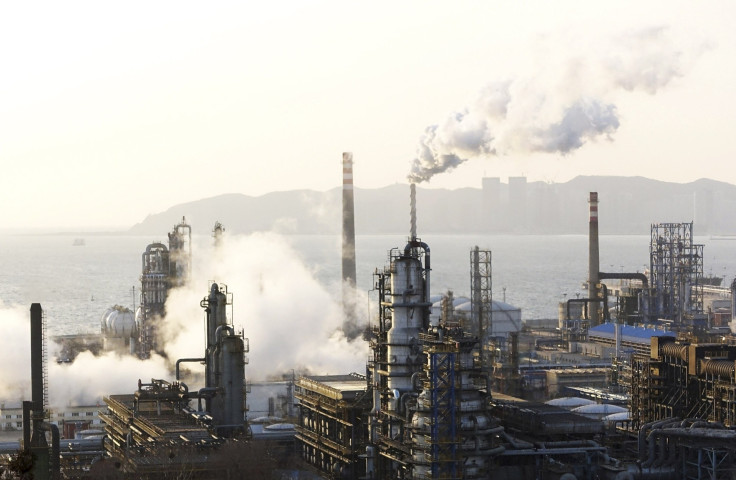China’s ‘New Normal’: Industrial Profits Slump On Falling Oil, Coal Prices, Despite Gains In Consumption-Driven Business

Industries that drive much of China’s economic growth are being hit by low commodity prices and production that exceeds demand, according to the latest data released Tuesday from China’s National Bureau of Statistics. The monthly report on industrial companies’ profits showed the biggest drop in years, by 8 percent in December compared to the same month in 2013, led by steep drops from companies that produce coal and oil, and despite growth for companies that make cars and electronics.
The country’s “growth is shifting from an investment-driven model to a consumption-led one,” the NBS said in a statement. The NBS statement is in line with China’s “new normal” of what it considers slower but healthier growth that moves away from investment toward an economy more dependent on consumption of goods by its increasingly wealthy population. But the question remains whether the country can gracefully make the transition.
As the country confronts its slowest pace of growth in nearly 25 years, the NBS data shows companies that extract raw energy materials are being hit by a global drop in prices for oil, coal and other key commodities. Chinese coal company profits fell 46 percent while oil and nuclear fuel companies saw profits drop 79 percent last year, the NBS said.
Overall, industrial profits fell by the biggest year-over-year drop in December since October 2011, according to Bloomberg data. The country’s top oil producer, PetroChina, saw net profit plunge 6.2 percent in its last reported quarter on weak demand for chemicals. China Shenhua Energy Co., Asia’s top coal producer, saw profits slide 2.5 percent last year. Chinese coal production fell last year for the first time this century, in part because of a 20 percent drop in coal prices, according to the China National Coal Association.
Meanwhile, consumption-oriented industrial companies, like automakers (up 18 percent last year, according to the NBS) and electronics manufacturers (up 17 percent in the same period), saw growth, but not enough to offset deep double-digit declines in the production-driven industries.
“The upstream industries, from mining to oil exploration, are hurting badly from falling input prices, while some manufacturers are benefiting,” Ding Shuang, a senior China economist with Citigroup Inc. in Hong Kong, told Bloomberg. “A deeper fall in industrial profits will damp investment activity to weigh on future growth.”
Chinese manufacturing data released last week points to a slight improvement in factory orders, a key metric that measures demand for material used to make goods. But the numbers still point to contraction. China’s preliminary Purchasing Managers’ Index report for January from HSBC Holdings and Markit Economics was at 49.8, up from December’s 49.6. Numbers below 50 indicate contraction, but the data was better than economists had predicted.
© Copyright IBTimes 2025. All rights reserved.






















